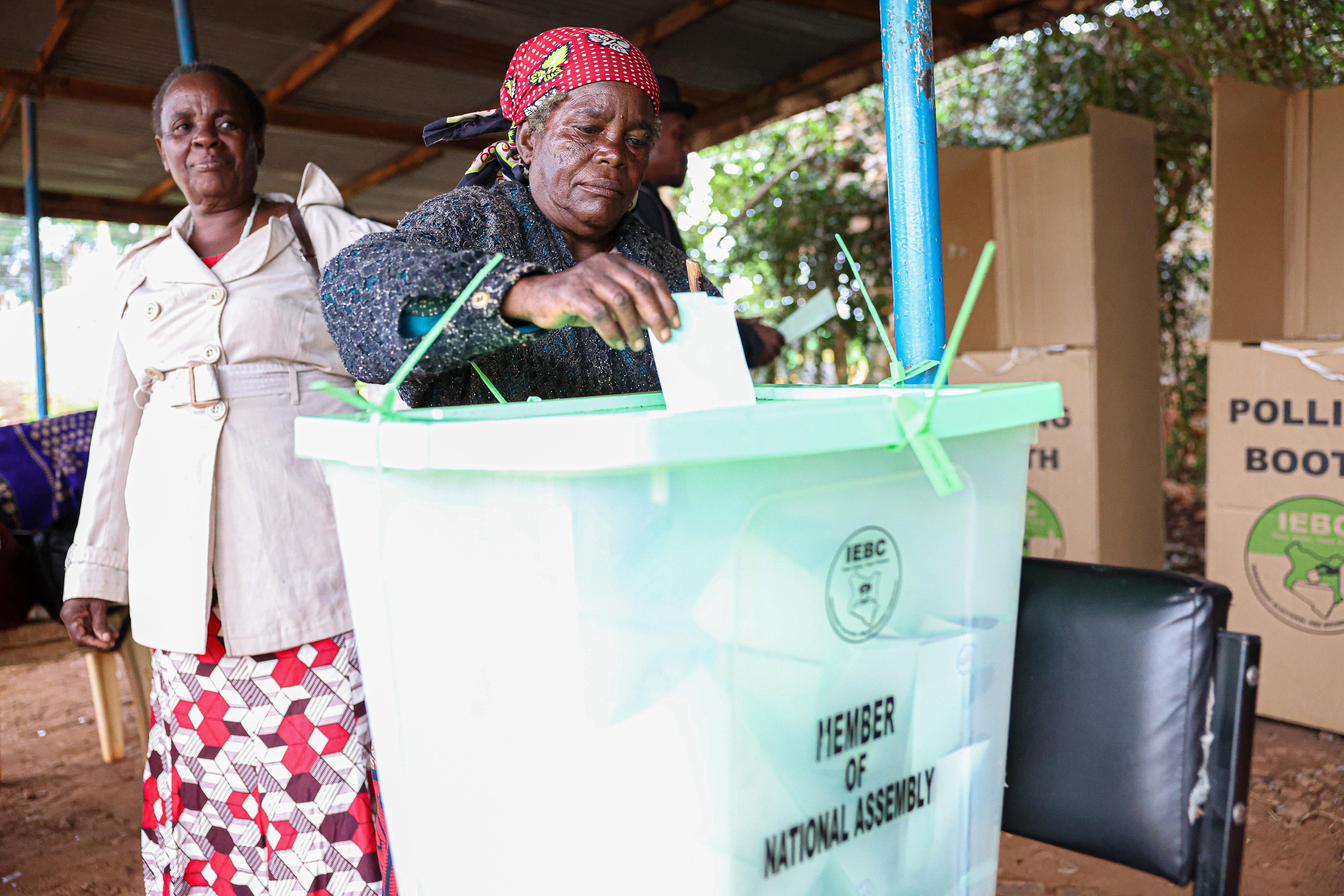
Elog has released its preliminary report on Thursday’s by-elections, highlighting both strengths and areas needing attention across the 22 electoral areas where voting took place.
The election-monitoring network, in collaboration with partners under the Technical Working Group on Elections, deployed 100 trained roving observers across Baringo County, Mbeere North in Embu, Mumbuni Ward in Machakos, Purko in Kajiado Central, Narok Town in Narok County, Malava in Kakamega, and Kariobangi North in Nairobi.
The mobile observation model allowed teams to cover diverse terrain and respond to emerging situations.
According to the report, observers monitored 46 polling stations during opening, 97 stations during voting, and 21 stations during closing and counting.
Observations covered both rural and urban areas, with 24 per cent of stations in urban settings and 56 per cent in rural locations.
All observers operated under Elog’s Code of Conduct and used digital tools for live reporting.
Elog Chairperson Victor Nyongesa described the preliminary findings as indicating a largely functional electoral process, while noting the presence of areas that require attention ahead of the 2027 general elections.
“While these challenges did not fundamentally undermine the overall credibility of the by-elections, they reveal issues that demand urgent action,” Nyongesa said.
Verification and consolidation of results are ongoing, and projections will be released in the final report.
Across the country, the polling environment varied.
Party agents were present in most stations, though 20.3 per cent lacked independent candidates’ agents.
Unauthorised individuals were observed in 9.2 per cent of stations, and 2.6 per cent of observers reported restricted access.
Overall, 93.4 per cent of polling stations were rated as having good or very good conduct, a figure described as encouraging but not sufficient to guarantee full credibility.
Most polling stations opened on time, with 83 per cent starting at or before the scheduled hour, while 17 per cent experienced delays.
Challenges with electronic KIEMS kits affected 1.6 per cent of stations, and essential materials were available at all observed locations.
Voter turnout remained below 50 per cent in many stations by close of polling.
Assisted voting occurred in 65.9 per cent of stations.
Although the oath of secrecy was administered in most cases, compliance could not be verified in 25.9 per cent of stations, raising potential concerns about confidentiality for vulnerable voters.
Secrecy of the ballot was not observed in 15.2 per cent of stations, which Elog described as a significant concern.
Voter access challenges were noted in 42 per cent of stations, including voters presenting at the wrong station, missing names in the register, or lacking identification documents.
Station layouts generally supported orderly movement, though 17.4 per cent of stations reported poor signage, which confused some voters.
Observers also reported the presence of high-profile individuals lingering near stations after voting, which created pressure points within the polling environment.
The closing and counting process was largely conducted in accordance with the law.
Most stations closed at 5 pm, reorganised layouts for visibility, and verified ballot box seals.
Ballots were read aloud as required, and while disputes arose in 10 per cent of stations, most were resolved on-site.
The report documented several concerning events, including clashes among groups of youths in Kariobangi North and confrontations between party supporters in Machakos.
Elog observers also noted unauthorised individuals assisting voters in some locations, instances of voters photographing marked ballots, and voting instructions linked to ballot symbol positions in parts of Machakos and Narok.
Nyongesa emphasised the need for stronger institutional discipline, noting that the conduct of political actors can affect voter confidence and overall electoral integrity.
In its preliminary recommendations, Elog called on the Independent Electoral and Boundaries Commission (IEBC) to provide timely information during elections, enforce assisted voting procedures, intensify voter education, and address the influence of high-profile individuals at polling stations.
Political parties were urged to ensure their supporters respect polling station boundaries and discipline members who engage in acts that affect ballot secrecy or voter experience.
The group also encouraged the National Police Service to investigate incidents of violence or breaches of electoral conduct and reminded the public to follow polling procedures, reject inducements, and use lawful channels for dispute resolution.
Elog will continue monitoring the post-election phase and plans to release a comprehensive final report once verification processes are completed.
















